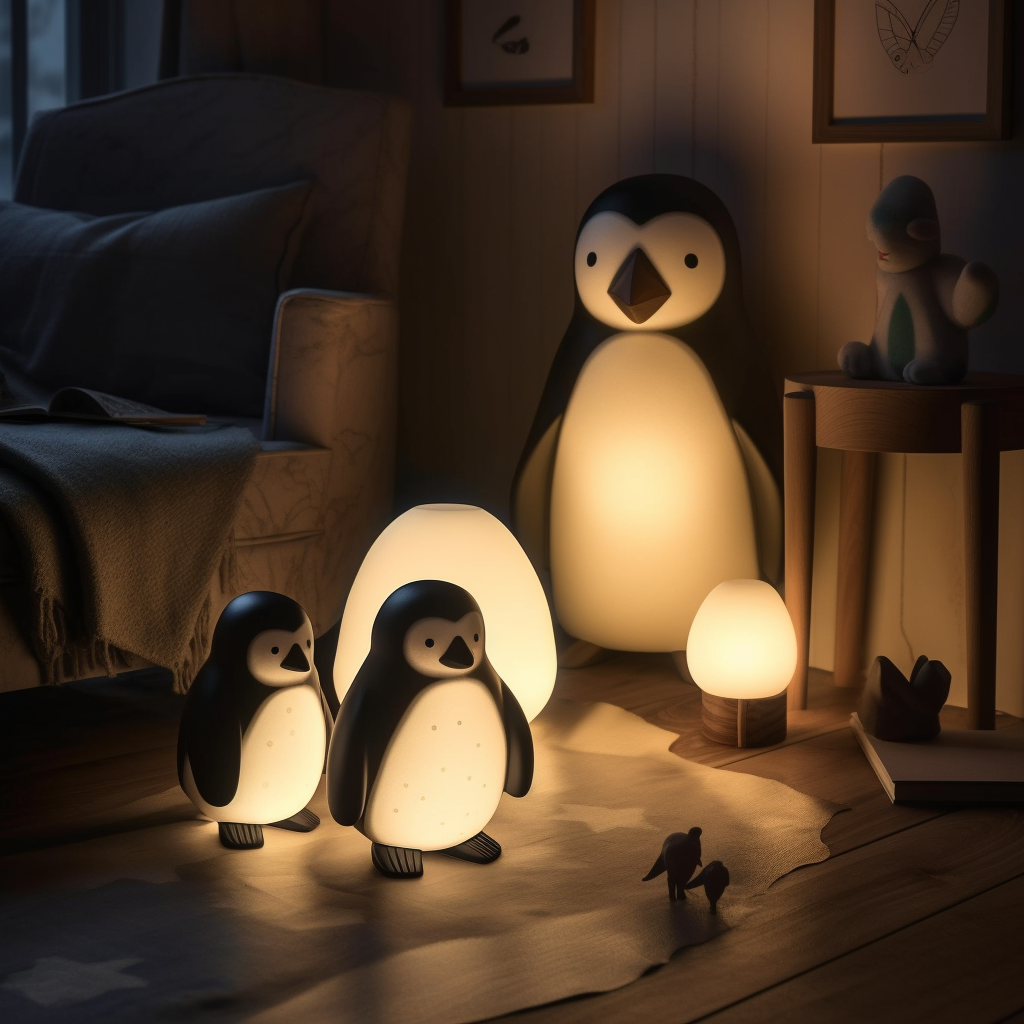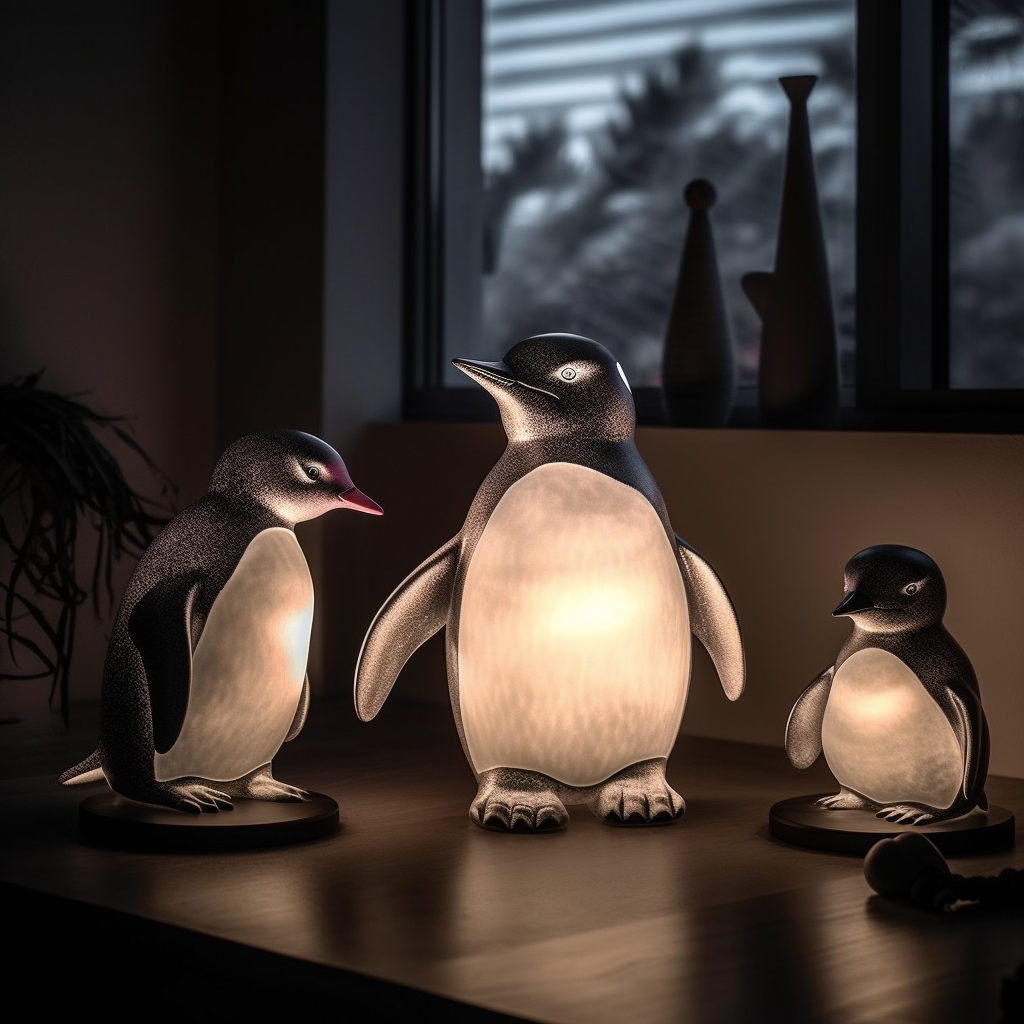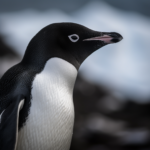Are Penguins Good Pets?
Penguins are undeniably adorable creatures that have captured the hearts of many people around the world. With their waddling walk and distinctive tuxedo-like appearance, it’s no wonder that some individuals may be tempted to keep them as pets. However, before embarking on the idea of having a penguin as a companion, it’s essential to consider several factors. While penguins may seem like fascinating pets, they have specific needs and requirements that make them unsuitable for most households. In this article, we will explore the reasons why penguins are not suitable as pets and why it is crucial to respect their natural habitat and conservation efforts. So, let’s dive into the world of penguins and discover why they are better off in the wild.
Key Takeaways
- Penguins are not suitable as pets due to their specific needs and requirements.
- Penguins require a specialized environment, such as a cold climate and access to water for swimming.
- Penguins are social animals that thrive in large colonies, making it difficult to provide them with adequate companionship in a domestic setting.
- Penguins have a specialized diet that includes a variety of fish and other marine creatures, which can be challenging to provide in a home environment.
- Owning a penguin is illegal in many countries due to conservation concerns and the need to protect these endangered species.
Understanding Penguins as Animals

Penguins are fascinating creatures that have captured the hearts of many people around the world. While they may seem like adorable pets, it’s important to understand that penguins are wild animals with unique characteristics and specific needs. In this section, we will explore the distinctive traits of penguins, their social behavior, and their natural habitat.
A. The Unique Characteristics of Penguins
Penguins are flightless birds that have adapted to life in the water. They are well-known for their distinctive appearance, with their black and white plumage, upright posture, and waddling walk. Here are some key characteristics that make penguins truly remarkable:
-
Aquatic Adaptations: Penguins have streamlined bodies and strong flippers that enable them to swim gracefully through the water. Their wings have evolved into flippers, which they use for propulsion while diving and hunting for food.
-
Thermoregulation: Living in cold environments, penguins have developed several adaptations to stay warm. They have a layer of blubber under their skin, which acts as insulation. Additionally, their feathers are densely packed and waterproof, providing excellent insulation against the cold water.
-
Excellent Divers: Penguins are exceptional divers, capable of reaching impressive depths. Some species can dive as deep as 1,850 feet (565 meters) in search of food. They have the ability to hold their breath for extended periods, allowing them to stay underwater for several minutes.
-
Diet: Penguins are carnivorous and primarily feed on fish, krill, and squid. Their diet varies depending on the species and the availability of food in their habitat. They are skilled hunters, using their streamlined bodies and sharp beaks to catch their prey.
B. The Social Behavior of Penguins
Penguins are highly social animals that live in large colonies, often consisting of thousands of individuals. They engage in various social behaviors that help them survive and thrive in their harsh environments. Here are some notable aspects of penguin social behavior:
-
Colonial Nesting: Penguins typically gather in large colonies during the breeding season. They build nests on land, using rocks or digging burrows, to protect their eggs and chicks from predators and harsh weather conditions.
-
Pair Bonding: Many penguin species form strong pair bonds, often lasting for several breeding seasons. They engage in courtship rituals, such as vocalizations and displays, to attract a mate. Once paired, they take turns incubating the eggs and caring for the chicks.
-
Communal Living: Penguins exhibit cooperative behavior within their colonies. They huddle together to conserve heat and protect themselves from the cold. This communal living also helps them defend against predators and increases their chances of finding food.
-
Vocalizations: Penguins communicate with each other through a variety of vocalizations, including calls, songs, and displays. These vocalizations play a crucial role in maintaining social bonds, locating mates, and coordinating group movements.
C. Penguins in Their Natural Habitat
Penguins are found in the Southern Hemisphere, primarily in Antarctica, as well as in other regions such as South Africa, South America, and New Zealand. They inhabit a range of environments, from icy Antarctic landscapes to rocky coastal areas. Here are some key aspects of their natural habitat:
-
Extreme Conditions: Penguins have adapted to survive in some of the harshest environments on Earth. They endure freezing temperatures, strong winds, and long periods of darkness during the Antarctic winter. Their ability to thrive in such extreme conditions is a testament to their remarkable resilience.
-
Marine Ecosystems: Penguins are highly dependent on marine ecosystems for their survival. They rely on the ocean for food, spending a significant portion of their lives at sea. The health of their habitat, including the availability of food and the presence of suitable nesting sites, is crucial for their well-being.
-
Threats and Conservation: Penguins face various threats in their natural habitat, including climate change, pollution, and overfishing. These factors can disrupt their food sources, impact their breeding success, and lead to population declines. Conservation efforts are essential to protect penguin species and their habitats.
In conclusion, while penguins are undeniably fascinating creatures, they are not suitable pets. Their unique characteristics, social behavior, and specific needs make them better suited to their natural habitats. It is important to appreciate penguins from a distance and support conservation efforts to ensure their long-term survival in the wild.
The Fascination with Penguins as Pets

Penguins have captured the hearts of people all around the world with their adorable appearance and quirky behavior. These flightless birds, known for their distinctive waddle and tuxedo-like plumage, have become popular figures in media and culture. From movies like “Happy Feet” to documentaries showcasing their life in the wild, penguins have become a symbol of charm and fascination. This widespread admiration has led some individuals to consider the idea of keeping penguins as pets.
A. The Popularity of Penguins in Media and Culture
Penguins have gained immense popularity in various forms of media, including movies, cartoons, and advertisements. Their unique characteristics, such as their comical walk and playful nature, make them endearing to people of all ages. Films like “March of the Penguins” and “Penguins of Madagascar” have not only entertained audiences but also educated them about the lives of these incredible creatures.
In addition to movies, penguins have become cultural icons. They are often depicted in cartoons, merchandise, and even as mascots for sports teams. Their association with winter and the holiday season adds to their appeal, making them a beloved symbol during festive times.
B. Why People Consider Penguins as Potential Pets
The idea of having a penguin as a pet may seem enticing to some individuals. Penguins are undeniably adorable, and the thought of having one as a companion can be appealing. However, it is crucial to understand the practicalities and responsibilities that come with owning a penguin.
-
Uniqueness: Penguins are exotic animals, and owning one can be seen as a status symbol. Some people are drawn to the idea of having an unusual and eye-catching pet that stands out from the crowd.
-
Fascination with Behavior: Penguins exhibit fascinating behaviors, such as their social interactions and unique breeding habits. Observing these behaviors up close can be a captivating experience for animal enthusiasts.
-
Connection with Nature: Penguins are associated with the natural world and the beauty of the Antarctic. For nature lovers, having a penguin as a pet may provide a sense of connection to the wild and a way to bring a piece of that environment into their homes.
-
Educational Value: Owning a penguin can be an educational experience, especially for children. It can teach them about wildlife conservation, the importance of protecting natural habitats, and the responsibilities of caring for animals.
While the idea of having a pet penguin may seem appealing, it is important to consider the practicalities and ethical implications. Penguins have specific needs and require a specialized environment to thrive. In the following sections, we will explore the various aspects of penguin care, including their habitat, diet, and overall welfare, to determine whether penguins make good pets.
Evaluating Penguins as Pets
A. The Pros: Why Penguins Might Make Good Pets
Penguins are undeniably fascinating creatures. With their adorable waddle and distinctive tuxedo-like appearance, it’s no wonder that many people are drawn to the idea of having a penguin as a pet. However, before diving into the world of penguin ownership, it’s important to consider the pros and cons. Let’s start by exploring why penguins might make good pets.
-
Unique and captivating companionship: Penguins have a charm that is hard to resist. Their playful nature and social behavior can provide hours of entertainment and companionship. Watching them swim gracefully through the water or interact with their environment can be a truly rewarding experience.
-
Educational opportunities: Owning a penguin can be a great educational experience, especially for children. It offers a chance to learn about the natural habitat, behavior, and conservation efforts surrounding these incredible creatures. It can also foster a sense of responsibility and empathy towards wildlife.
-
Low maintenance: Penguins are known to be relatively low maintenance compared to other exotic pets. They don’t require regular grooming, and their diet consists mainly of fish, which is readily available. Additionally, penguins are generally clean animals, making them easier to care for compared to some other pets.
-
Long lifespan: Penguins have a relatively long lifespan compared to many other animals. Depending on the species, they can live anywhere from 15 to 20 years in captivity. This means that if you decide to bring a penguin into your home, you can expect to enjoy their company for a significant portion of your life.
-
Conversation starter: Having a penguin as a pet is sure to spark conversations and create memorable experiences. Whether it’s inviting friends over for a penguin-themed gathering or simply sharing stories about your unique companion, owning a penguin can add an exciting element to your social interactions.
B. The Cons: Challenges of Keeping Penguins as Pets
While the idea of having a pet penguin may sound appealing, it’s crucial to consider the challenges and potential drawbacks that come with it. Here are some factors to keep in mind:
-
Legal restrictions: Before even considering the idea of owning a penguin, it’s essential to research the legalities surrounding pet ownership. Many countries have strict regulations and permits in place to protect the welfare of these animals. It’s crucial to ensure that you are legally allowed to keep a penguin as a pet in your area.
-
Specialized care requirements: Penguins have specific care needs that must be met to ensure their well-being. These include providing a suitable habitat that mimics their natural environment, maintaining proper water quality, and offering a varied diet that meets their nutritional requirements. Meeting these needs can be challenging and may require significant time, effort, and financial investment.
-
Space limitations: Penguins are highly active animals that require ample space to swim, dive, and explore. They thrive in large, open areas where they can exhibit their natural behaviors. Unless you have access to a spacious and well-equipped facility, it may be difficult to provide an environment that adequately meets their needs.
-
Socialization requirements: Penguins are social animals that thrive in the company of their own kind. It’s essential to consider whether you can provide the necessary socialization opportunities for a penguin. Without proper interaction and companionship, penguins may become lonely, stressed, or exhibit behavioral issues.
-
Ethical considerations: Keeping penguins as pets raises ethical questions regarding animal welfare and wildlife conservation. Penguins are wild animals that have evolved to thrive in their natural habitats. Captivity can be stressful and detrimental to their physical and psychological well-being. It’s crucial to weigh the potential negative impact on the penguin‘s quality of life against the desire to have them as a pet.
In conclusion, while penguins may seem like charming and intriguing pets, it’s important to carefully evaluate the pros and cons before considering ownership. The unique companionship and educational opportunities they offer must be balanced against the legal restrictions, specialized care requirements, space limitations, socialization needs, and ethical considerations associated with keeping penguins as pets. Ultimately, the decision to bring a penguin into your home should be made with careful consideration and a deep understanding of the responsibilities and challenges involved.
Practical Considerations for Keeping Penguins as Pets
A. Feeding and Housing Requirements for Penguins
When considering keeping a penguin as a pet, it’s important to understand the unique feeding and housing requirements these fascinating creatures have. Penguins are primarily carnivorous and have specific dietary needs that must be met to ensure their health and well-being.
Penguin Diet
Penguins in the wild primarily feed on fish, squid, and krill. If you’re considering keeping a pet penguin, it’s crucial to provide them with a diet that closely resembles their natural food sources. This means offering them a variety of fish, such as herring, smelt, and capelin, as well as other seafood options like shrimp and squid. It’s essential to ensure that the fish is fresh and of high quality to prevent any potential health issues.
Feeding Schedule
Penguins typically require two to three meals a day. It’s important to establish a consistent feeding schedule and provide them with the appropriate portion sizes. Overfeeding can lead to obesity and other health problems, so it’s crucial to monitor their food intake closely.
Housing and Enclosure
Creating a suitable habitat for a pet penguin is a significant commitment. Penguins need access to both land and water, as they spend a considerable amount of time swimming and diving. An enclosure with a pool or access to a natural body of water is essential for their well-being.
The enclosure should be spacious enough to allow the penguin to move around comfortably. It should also provide shelter from extreme weather conditions, as penguins are accustomed to cold climates. Maintaining a suitable temperature and humidity level within the enclosure is crucial for their health.
B. Health and Wellness Considerations for Penguins
Ensuring the health and well-being of a pet penguin is of utmost importance. Penguins have specific health requirements that need to be addressed to prevent illness and promote their overall wellness.
Veterinary Care
Regular veterinary check-ups are essential for pet penguins. Finding a veterinarian experienced in treating exotic animals, specifically penguins, is crucial. These professionals can provide necessary vaccinations, perform routine health examinations, and offer guidance on proper nutrition and care.
Enrichment and Mental Stimulation
Penguins are intelligent creatures that require mental stimulation and enrichment to thrive. Providing them with toys, puzzles, and activities that mimic their natural behaviors can help prevent boredom and promote their overall well-being.
Exercise and Swimming
Penguins are highly active animals that require regular exercise and ample opportunities for swimming. Swimming not only provides physical exercise but also helps maintain their waterproof feathers. It’s important to ensure that the enclosure or living space allows for sufficient swimming space to meet their needs.
C. Legal Restrictions and Guidelines for Keeping Penguins
Before considering a penguin as a pet, it’s crucial to understand the legal restrictions and guidelines surrounding their ownership. Penguins are protected wildlife, and many countries have strict regulations regarding their possession and care.
Legal Restrictions
In many countries, including the United States, owning a penguin as a pet is illegal without proper permits and licenses. These regulations are in place to protect both the penguins and their natural habitats. It’s essential to research and understand the specific laws and regulations in your area before considering a pet penguin.
Ethical Considerations
Keeping penguins as pets raises ethical concerns. Penguins are wild animals that have evolved to thrive in their natural habitats. Captivity can be stressful for them and may compromise their overall well-being. It’s crucial to consider the ethical implications of keeping a penguin as a pet and to prioritize their welfare above personal desires.
In conclusion, while penguins are fascinating creatures, they are not suitable pets for the average person. Their unique feeding and housing requirements, along with legal restrictions and ethical considerations, make them challenging to care for responsibly. It’s essential to prioritize the well-being and conservation of penguins by supporting efforts to protect their natural habitats and promote wildlife conservation.
Alternatives to Keeping Penguins as Pets

A. Supporting Penguin Conservation Efforts
While the idea of having a penguin as a pet may seem appealing, it’s important to consider the welfare and conservation of these incredible creatures. Penguins are wild animals that have specific needs and behaviors that are difficult to replicate in a home environment. Instead of keeping penguins as pets, there are several alternatives that allow you to support penguin conservation efforts and enjoy their presence in a responsible way.
One of the most effective ways to contribute to penguin conservation is by supporting organizations dedicated to protecting these amazing creatures and their habitats. These organizations work tirelessly to study penguin behavior, monitor their populations, and implement conservation strategies. By donating to these organizations or volunteering your time, you can make a real difference in the lives of penguins and help ensure their survival for future generations.
B. Visiting Penguins in Zoos and Aquariums
If you’re eager to see penguins up close and personal, visiting a zoo or aquarium is a fantastic alternative to keeping them as pets. Many reputable zoos and aquariums have dedicated penguin exhibits that provide a safe and enriching environment for these animals. These exhibits often mimic the natural habitats of penguins, allowing visitors to observe their behavior and learn about their unique adaptations.
When visiting a zoo or aquarium, you’ll have the opportunity to see different penguin species, each with its own distinct characteristics. From the playful antics of the African penguins to the regal elegance of the Emperor penguins, observing these incredible creatures in a controlled environment can be both educational and awe-inspiring. Additionally, many zoos and aquariums offer educational programs and presentations that provide valuable insights into penguin biology and conservation.
C. Adopting a Penguin from a Conservation Organization
Another way to support penguin conservation is by adopting a penguin from a reputable conservation organization. These adoption programs allow you to symbolically “adopt” a penguin by making a donation to the organization. In return, you’ll receive a certificate of adoption, updates on your adopted penguin’s progress, and the satisfaction of knowing that you’re directly contributing to their well-being.
By adopting a penguin, you’re helping to fund vital research, conservation projects, and habitat protection initiatives. Your donation can assist in efforts to monitor penguin populations, study their behavior, and implement measures to mitigate threats they face in the wild. Adopting a penguin is a meaningful way to show your support for these remarkable creatures and contribute to their long-term survival.
In conclusion, while penguins may seem like adorable pets, it’s important to consider their well-being and conservation. Instead of keeping penguins as pets, there are alternative ways to enjoy their presence and contribute to their survival. By supporting penguin conservation efforts, visiting penguins in zoos and aquariums, or adopting a penguin from a conservation organization, you can make a positive impact on the lives of these incredible creatures. Let’s work together to ensure that penguins thrive in their natural habitats for generations to come. Conclusion
In conclusion, while penguins may seem like adorable and fascinating creatures, they are not suitable pets for the average person. Penguins have specific needs that are difficult to meet in a home environment, such as a large pool for swimming, a cold climate, and a diet of fresh fish. They also require a significant amount of time, effort, and resources to properly care for. Additionally, penguins are social animals that thrive in large colonies, so keeping them alone in captivity can be detrimental to their well-being. It is best to admire penguins from a distance, either by visiting them in a zoo or observing them in their natural habitat.
Frequently Asked Questions
Q1: Why are penguins considered good animals?
Penguins are often seen as good animals due to their unique characteristics and behaviors. They are social, intelligent, and have a fascinating way of life. They are also known for their loyalty to their partners and care for their offspring. However, it’s important to remember that these traits are best observed in their natural habitats.
Q2: Are penguins good animals?
Yes, penguins are wonderful creatures with unique behaviors and characteristics. They are known for their adaptability, social nature, and survival skills in harsh environments. However, their “goodness” should not be confused with suitability as pets.
Q3: Would a penguin make a good pet?
While penguins are fascinating creatures, they do not make good pets. They have specific needs related to diet, habitat, and social interaction that are difficult to meet in a home environment. Additionally, keeping a penguin as a pet is illegal in many places due to wildlife conservation laws and animal ethics considerations.
Q4: Can we keep a penguin as a pet?
In most jurisdictions, it is illegal to keep a penguin as a pet. Penguins are protected under wildlife conservation laws and are not considered suitable for domestication. They have specific needs and behaviors that can only be met in their natural habitats or specialized care facilities.
Q5: Why are penguins not good pets?
Penguins have specific needs related to diet, habitat, and social interaction that are difficult to meet in a home environment. They require a cold environment, a diet of fresh fish, and the company of other penguins. Additionally, keeping a penguin as a pet is illegal in many places due to animal welfare and wildlife conservation laws.
Q6: How can one keep a penguin as a pet?
It is not recommended or legal to keep a penguin as a pet in most places. Penguins are wild animals with specific needs that cannot be met in a domestic environment. They are protected species in many countries, and keeping them can lead to serious legal consequences.
Q7: Can you keep a penguin as a pet?
No, in most jurisdictions it is illegal to keep a penguin as a pet. Penguins are protected under wildlife conservation laws and are not suitable for domestication. They have specific needs and behaviors that can only be met in their natural habitats or specialized care facilities.
Q8: Are penguins good pets?
While penguins are fascinating and adorable creatures, they do not make good pets. They have specific needs related to diet, habitat, and social interaction that are difficult to meet in a home environment. Additionally, keeping a penguin as a pet is illegal in many places due to animal welfare and wildlife conservation laws.
Q9: Can you buy a penguin as a pet?
No, it is illegal to buy or sell penguins in most jurisdictions. Penguins are protected under wildlife conservation laws and are not suitable for domestication. They have specific needs and behaviors that can only be met in their natural habitats or specialized care facilities.
Q10: What is the lifespan of a penguin?
The lifespan of a penguin varies depending on the species. For example, Emperor Penguins can live up to 20 years in the wild, while smaller species like the Little Blue Penguins have a lifespan of about 6 to 7 years. In captivity, under optimal conditions, some penguins can live longer. However, captivity is not an ideal environment for these wild creatures.




